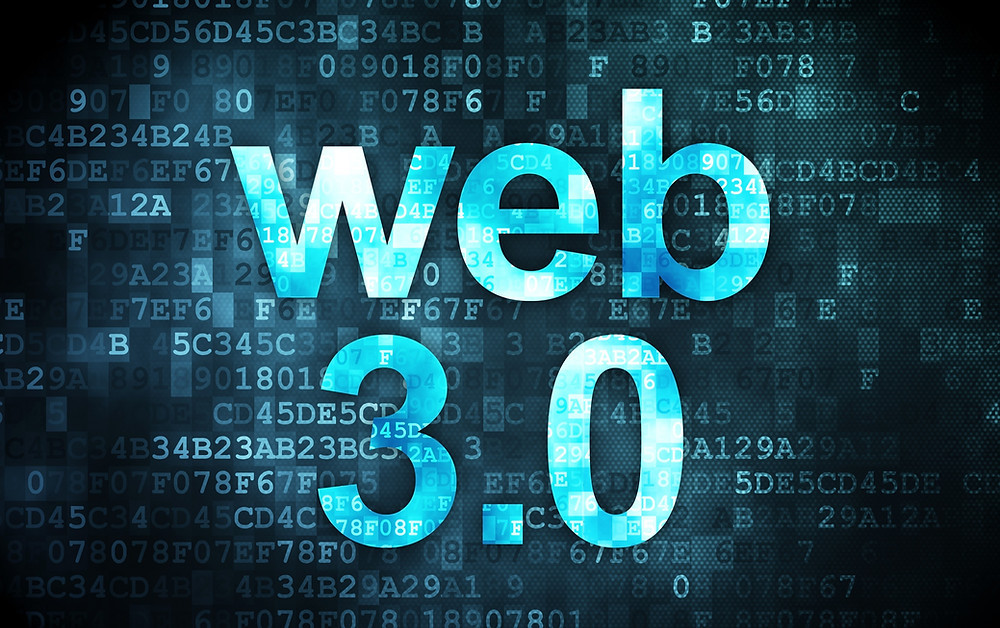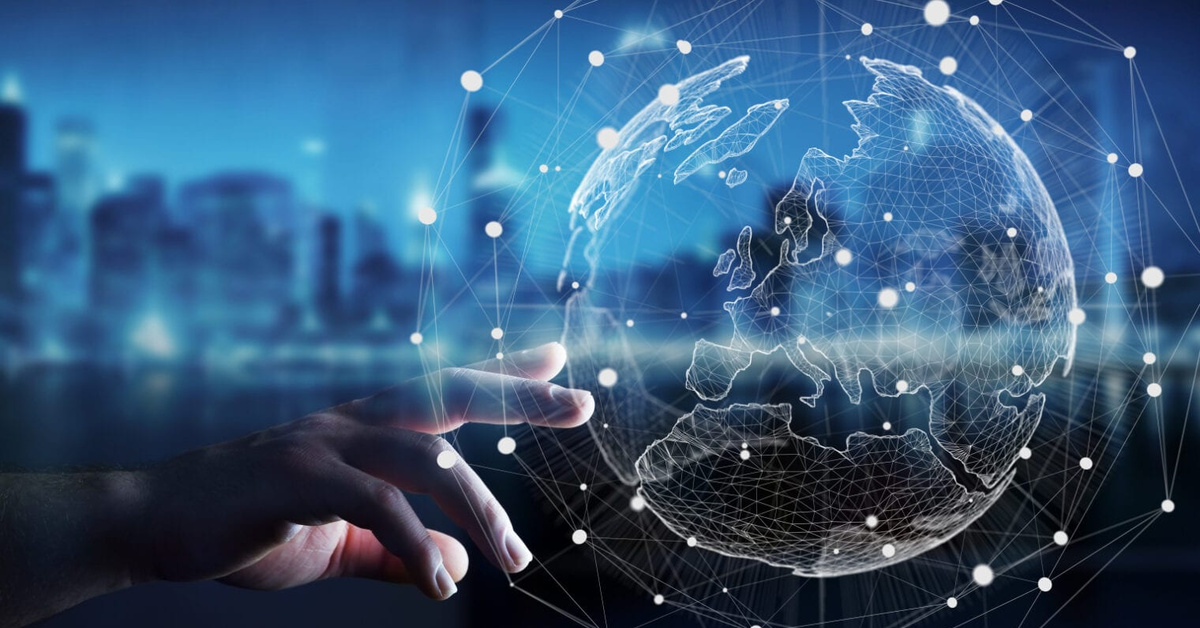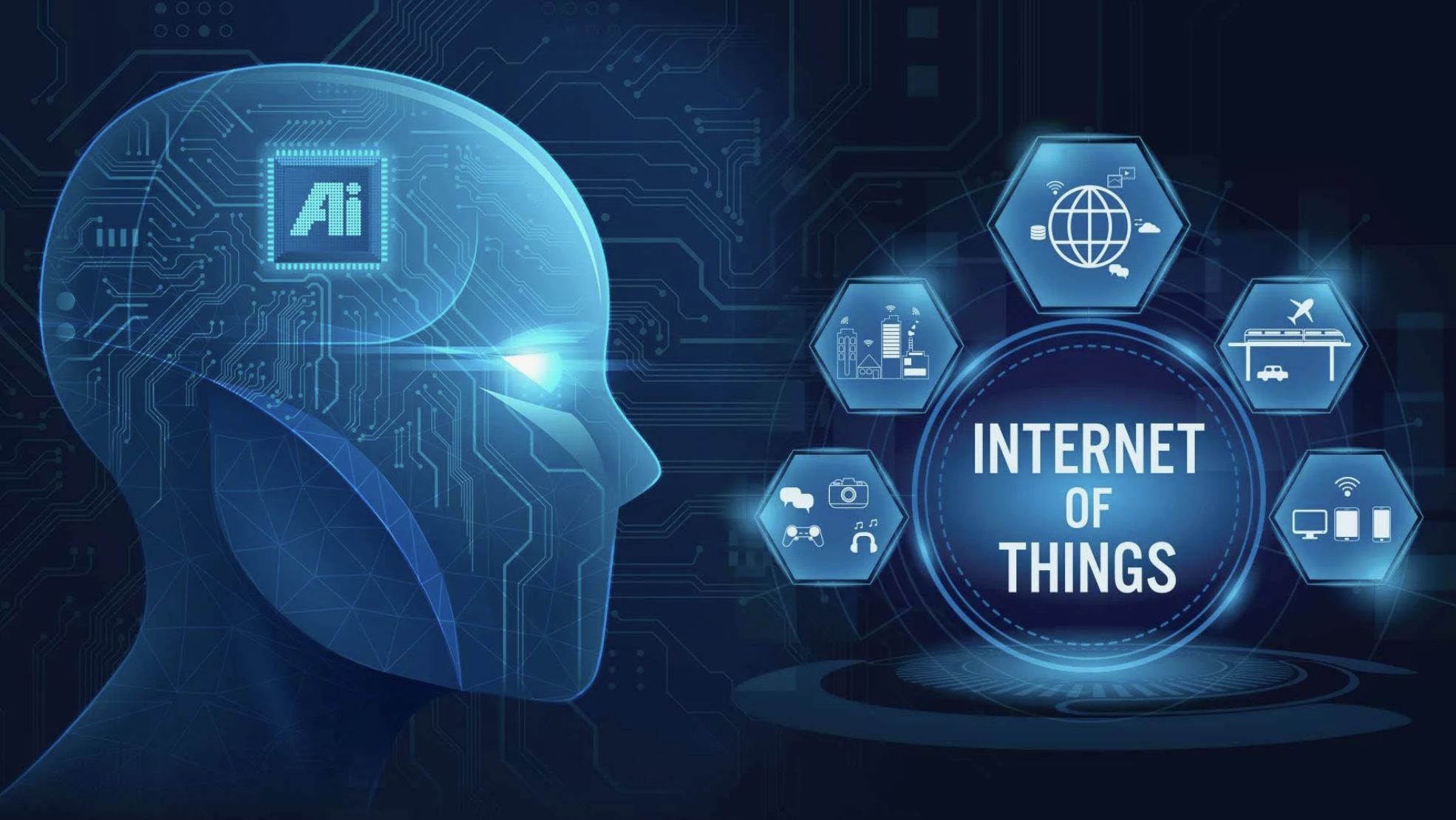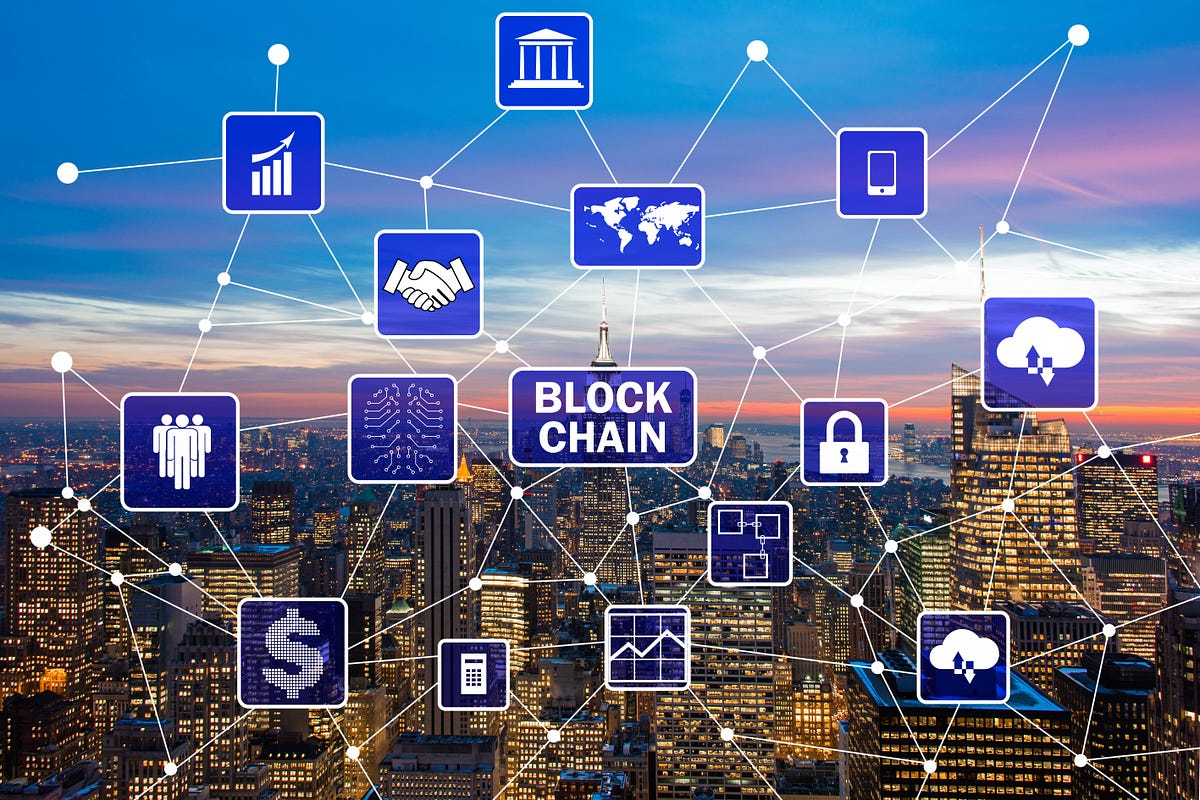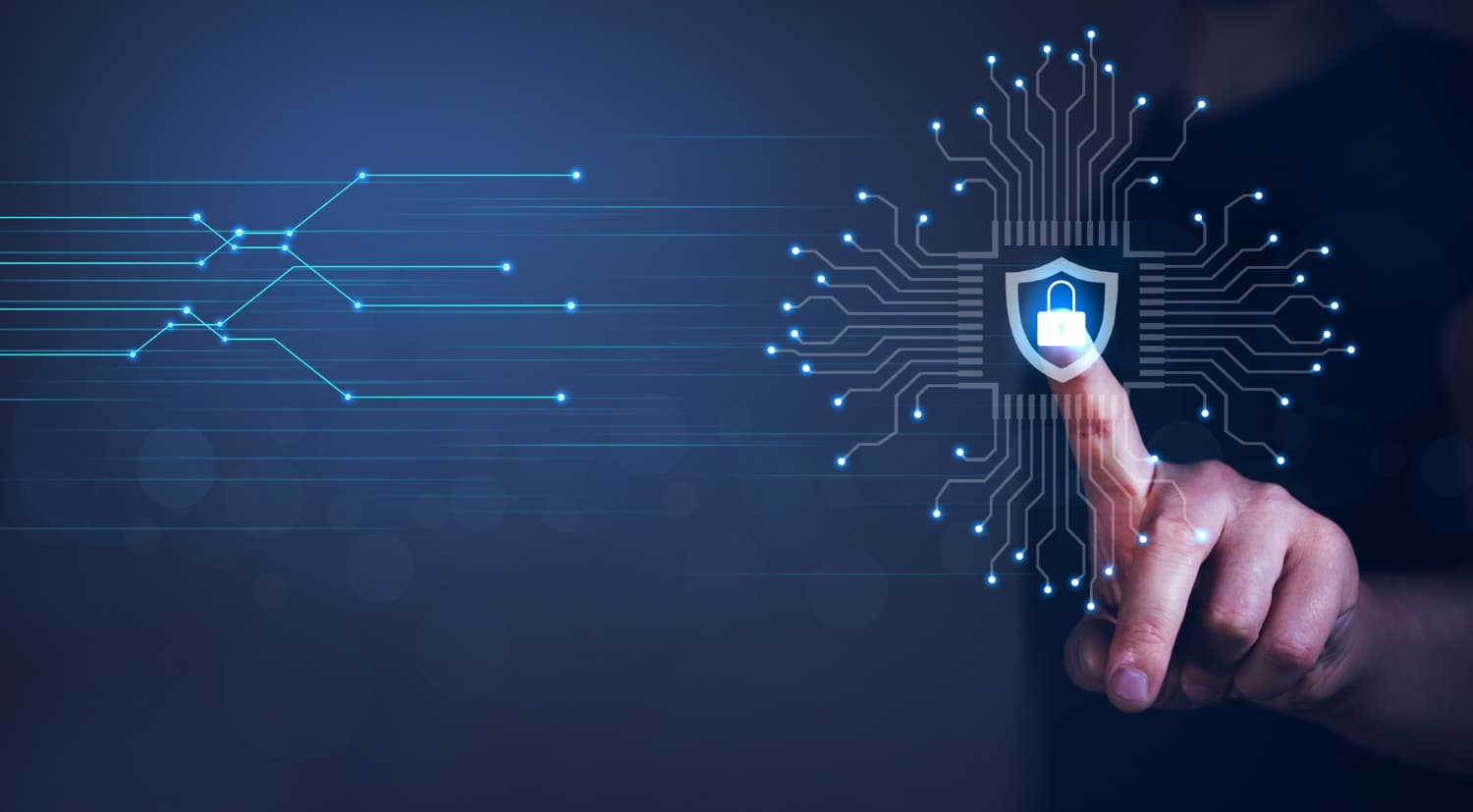For decades, the Internet promised openness, freedom, and equal access. But over time, it has become increasingly centralized. A small group of corporations now control much of our online experience—what we see, how we communicate, and where our data lives. This centralization has led to rising concerns about censorship, privacy violations, monopolistic power, and digital inequality.
At the same time, a new wave of innovation is challenging this model. Fueled by blockchain, peer-to-peer networks, and the philosophy of Web 3.0, the idea of a decentralized Internet—one not owned by anyone, but governed by everyone—is gaining traction. This isn’t just about technology; it’s about who controls the future of the digital world.
🚀 From Web 1.0 to Web 3.0: The Evolution of the Internet
In its early days (Web 1.0), the Internet was mostly static. Users could read information but not contribute much. With Web 2.0, platforms like Facebook, Google, and YouTube enabled user-generated content—but also became gatekeepers of data, monetizing attention and behavior.
Now, Web 3.0 is emerging. It’s defined by decentralization, trustless systems, and user ownership. Instead of logging in through Google or storing files on Amazon’s servers, users can interact directly via decentralized applications (dApps), store data in distributed networks, and own digital assets through blockchain.
🔄 What Does a Decentralized Internet Look Like?
In a decentralized Internet, no single entity has control. Instead, services run on a network of nodes—individual computers or servers operated by independent users. This model reduces single points of failure and makes censorship and surveillance harder.
Imagine logging into a website without giving away your personal data. Or joining a community run not by a CEO, but by a smart contract where every vote counts. This is the world decentralized systems are trying to build.
Here’s a simple mental image:
In a centralized system, users connect to a central hub that controls everything.
In a decentralized system, users are interconnected in a web, sharing responsibility and control.
🔍 Key Trends Driving Decentralization
1. Web 3.0 Infrastructure
Platforms like Ethereum and Solana allow developers to build apps that run on the blockchain. These apps are open-source, transparent, and often governed by their communities.
2. Decentralized Storage
Projects like IPFS (InterPlanetary File System) and Arweave replace traditional cloud providers with distributed file networks, where your data is not stored in one place but across many nodes.
3. Decentralized Identity (DID)
Instead of relying on Facebook or Google to log in, you can carry your digital identity in your wallet—secure and portable. No more sharing your personal information to access services.
4. DAOs (Decentralized Autonomous Organizations)
These are internet-native communities governed by code and consensus. Members vote on decisions, manage budgets, and build projects without central leadership.
5. NFTs and the Metaverse
Digital ownership is no longer abstract. NFTs allow people to own assets—art, music, real estate—in digital environments like Decentraland and The Sandbox, where users shape the world.
⚠️ What’s Holding Back Full Decentralization?
While the vision is compelling, the road is not smooth.
-
Complexity: Many decentralized tools are hard to use for non-technical people.
-
Speed and Scale: Blockchains can be slow and expensive, especially during peak times.
-
Fragmentation: There’s a lack of unified standards between different projects.
-
Legal Uncertainty: Governments and regulators are still figuring out how to approach decentralized platforms.
-
User Habits: Most people still choose convenience over control. It's hard to beat the simplicity of centralized apps—for now.
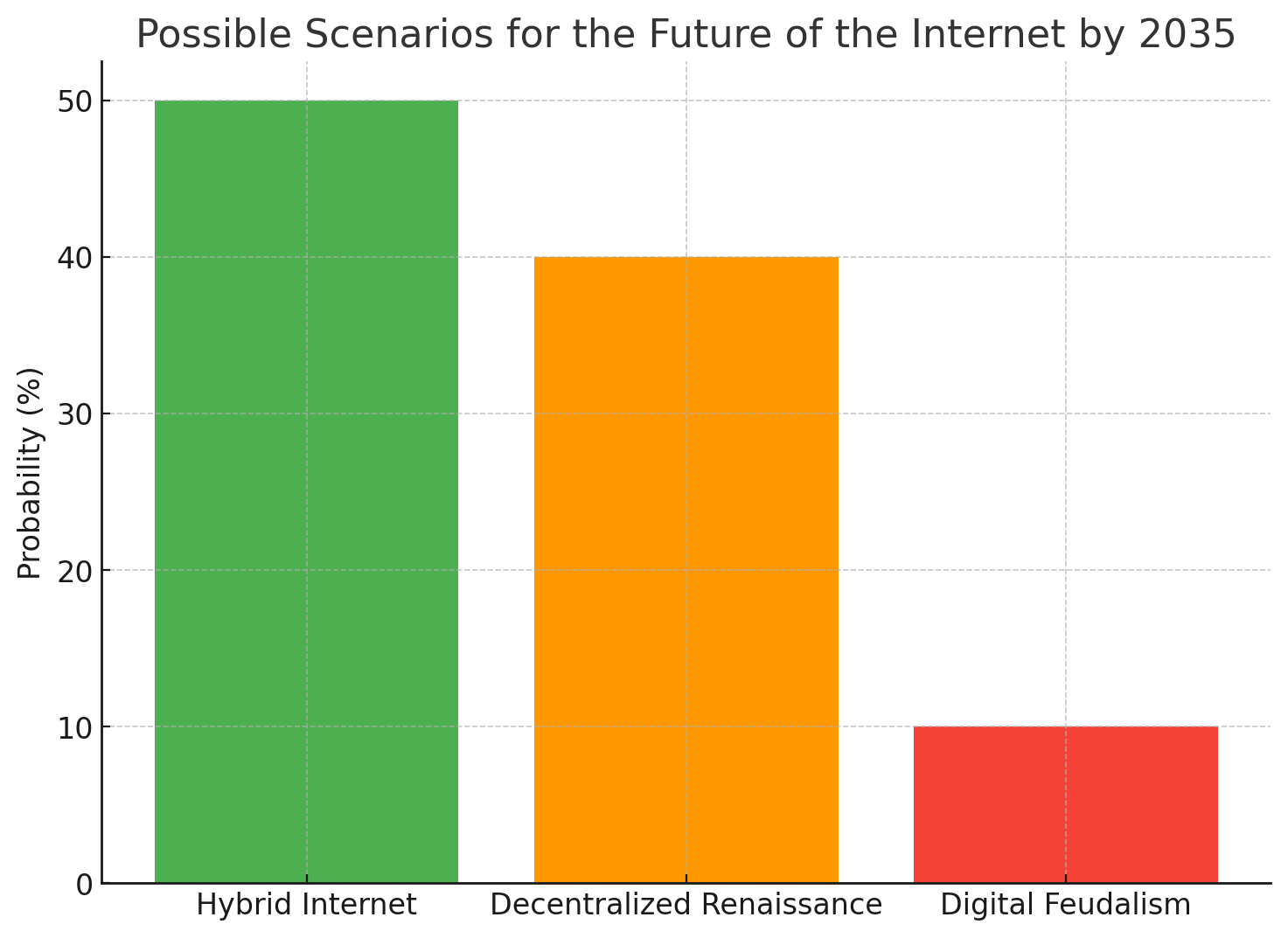
🔮 What Might the Future Look Like?
Scenario 1: The Hybrid Internet
This is the most realistic outcome. Centralized and decentralized platforms coexist. Users choose based on their values—privacy, control, or convenience.
Scenario 2: A Decentralized Renaissance
If decentralized tech becomes easier, cheaper, and more trusted, we might see a mass migration to open platforms. Control returns to users and communities.
Scenario 3: Digital Feudalism
Big Tech tightens its grip, co-opting decentralization tools without changing their business models. True decentralization gets sidelined.
📅 A Look Ahead to 2035
We’re still in the early stages. The 2020s are laying the foundation—blockchains, decentralized identities, NFT-based ownership. By 2030, we may see broader adoption of decentralized social networks, financial systems (DeFi), and governance models (DAOs). By 2035, the structure of the Internet could look radically different—or surprisingly familiar.
✅ Final Thoughts
Will the Internet become fully decentralized? Technically, it's possible. Practically, it's complicated. But the direction is clear: the tools are being built, the culture is shifting, and the demand for digital self-sovereignty is growing.
What comes next depends not just on engineers, but on all of us. Every choice—to use a privacy-focused browser, join a DAO, or support open protocols—helps shape the future. The decentralized Internet isn’t just coming. In many ways, it’s already here.

